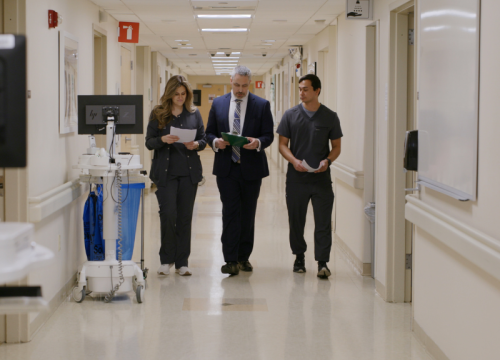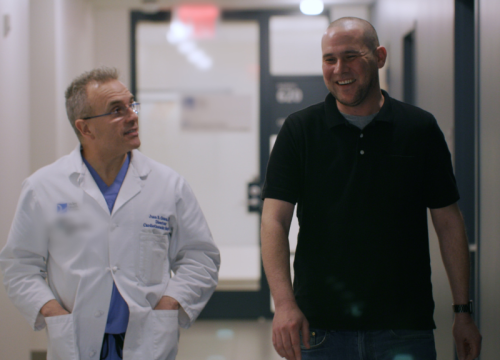Pulmonary function testing (PFT) at Valley's Pulmonary Function Testing Lab involves the use of noninvasive diagnostic tests to show how well the lungs are working. PFTs measure how much air your lungs can hold and the flow of air in and out of your lungs. These tests can also measure the amount of gases exchanged across the membrane between your alveolar wall and capillary membrane.
Ultimately, PFTs diagnose various restrictive and obstructive pulmonary diseases and measure responsiveness to bronchodilators.
PFT is also particularly useful as a preoperative screening measure. Those with lung difficulties may have trouble coming out of anesthesia. Knowing that a patient has these lung difficulties allows the medical team to prepare, resulting in greater, more personalized patient care.
Pulmonary function testing can benefit patients who have:
- Asthma
- Chronic obstructive pulmonary disease (COPD)
- Bronchitis
- A history of smoking or exposure to secondhand smoke
- Shortness of breath
- Wheezing
Spirometry
Spirometry is one of the most common lung function tests. This test measures forced expiratory flow (FEV1) and can show if patients are within their normal limits. Simple and painless, spirometry takes just a few minutes to perform.
Cardiopulmonary Exercise Testing
Our PFT lab also offers cardiopulmonary exercise testing on a bicycle ergometer, which is conducted by one of our board-certified pulmonologists and respiratory therapists. This is a computerized test that provides a breath-by-breath analysis of respiratory gas exchange at rest and during a period of exercise. Information on airflow, O2 consumption, CO2 production, heart rate, and electrocardiogram (EKG) are collected and used for computation of other variables. ABG analyses may also be sampled. The results are then interpreted by a pulmonologist.
















